Premium Only Content
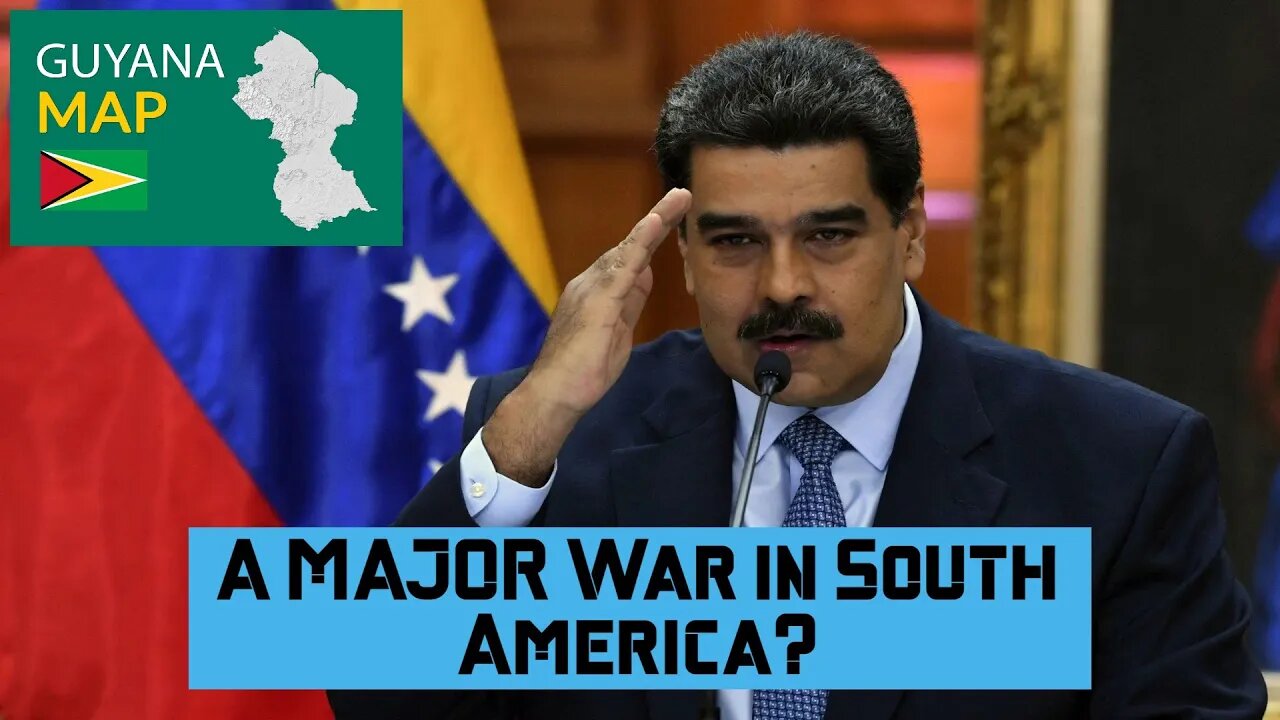
A major war in South America? #guyana #venezuela #usmilitary
Hello everyone, a new war is brewing in South America. Russia’s war in Ukraine stirs Venezuela’s dreams of conquest in oil-rich Guyana. If Russia’s invasion of Ukraine has taught us anything, it’s that authoritarian leaders consider themselves above the law—unrestrained by the sovereignty declarations, human rights protections, and international institutions established after World War II to prevent future conflict. For Russian President Vladimir Putin and his ilk, the rules of the international order were made to be broken. And his latest exploits show that, without a credible deterrent, territorial conquest is on the table. A powder keg much closer to the United States could be one of the world’s next tests: the Guyana-Venezuela border, where the two countries have been embroiled in a bitter fight over a contested region known as the Essequibo. The origins of the dispute date to 1831, the year after Venezuela became a sovereign state. At the time, the British Empire was consolidating its territories along the northern coast of South America, which it had purchased from the Netherlands in 1814. The area to the west of the Essequibo River was among them and became part of British Guiana. Spain had previously claimed some of this land, yet Madrid’s preoccupation with independence movements across Latin America prevented Spanish authorities from contesting British occupation of the region. But following Venezuela’s independence, and then the discovery of gold in the Essequibo in the 1850s, Venezuelan authorities asserted their inherited claim, going as far as breaking diplomatic ties with the United Kingdom in 1887 until the countries could reach a compromise over the border. In 1897, both Venezuela and British Guiana ceded jurisdiction of the Essequibo dispute to an international tribunal in Paris, composed of jurists from the United States, United Kingdom, and Russia. An 1899 ruling allowed Venezuela to retain the Orinoco River basin, while British Guiana was awarded more than 90 percent of the densely forested land between the Orinoco and Essequibo rivers. Today, that area represents some two-thirds of Guyana’s national territory. For six decades, Venezuela accepted and respected its borders with British Guiana, including during the negotiation of a 1932 tripartite agreement also involving Brazil that confirmed the countries’ territorial boundaries. But in 1962, just after the United Kingdom entertained the first serious deliberations over Guyanese independence, Venezuelan officials declared the 1899 ruling “null and void” over possible procedural errors that surfaced decades later, including an accusation of collusion between the British and Russian jurists. Venezuela’s militarization of the border region ensued, especially following Guyana’s independence in 1966. Facing overwhelming diplomatic pressure to resolve the matter peacefully, the new Guyanese government and officials in Caracas eventually signed the Port of Spain Protocol in 1970, placing a moratorium on the dispute that lasted until 1982. To avoid escalation following the protocol’s expiration, the United Nations began brokering diplomatic exchanges between Venezuela and Guyana. In 1990, the U.N. created the Good Offices Process to mediate the dispute. But with the two countries unable to reach an agreement after nearly three decades, U.N. Secretary-General António Guterres referred the case to the International Court of Justice (ICJ) in 2018, where it sits today. Although the case has stalled, the ICJ confirmed in a 2020 hearing that the body has authority to hear the suit.
====================================
We appreciate all of our viewers and supporters. Thank you.
====================================
Support us on Patreon: https://www.patreon.com/shieldwalldefense
====================================
Fair use is the right to use a copyrighted work under certain conditions without permission of the copyright owner. The doctrine helps prevent a rigid application of copyright law that would stifle the very creativity the law is designed to foster. It allows one to use and build upon prior works in a manner that does not unfairly deprive prior copyright owners of the right to control and benefit from their works. Together with other features of copyright law like the idea/expression dichotomy discussed above, fair use reconciles the copyright statute with the First Amendment.
====================================
-
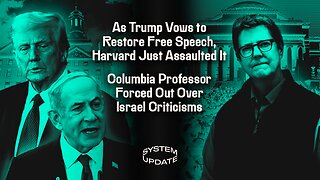 1:37:19
1:37:19
Glenn Greenwald
7 hours agoAs Trump Vows to Restore Free Speech, Harvard Just Assaulted It; Columbia Professor Forced Out Over Israel Criticisms | SYSTEM UPDATE #394
64.2K114 -
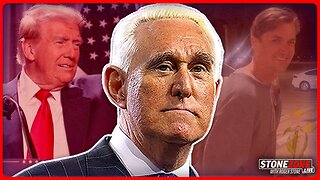 58:45
58:45
The StoneZONE with Roger Stone
4 hours agoTrump Pardons Ross Ulbricht | The StoneZONE w/ Roger Stone
53.6K10 -
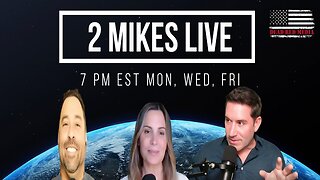 1:57:31
1:57:31
2 MIKES LIVE
13 hours ago2 MIKES LIVE #170 with special guest Rep. Buddy Carter (R-GA)
47.7K1 -
 1:02:58
1:02:58
Flyover Conservatives
23 hours agoA Doctors Response to Trump’s First Moves: W.H.O. and FDA - Dr. Troy Spurrill; A REAL-LIFE Approach to Health and Wellness Transformation - Kellie Kuecha Moitt | FOC Show
48.1K3 -
 41:50
41:50
State of the Second Podcast
8 hours agoWhat do Gold and Guns have in common?
20K4 -
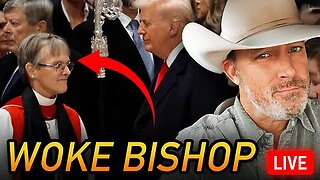 1:01:26
1:01:26
PMG
4 hours ago $1.18 earnedLibs In FULL PANIC Since Trump Took Office! Creating a Faith to Fit their Agenda
14.8K4 -
 7:09:22
7:09:22
Dr Disrespect
12 hours ago🔴LIVE - DR DISRESPECT - TRIPLE THREAT CHALLENGE - EXTREME EDITION
246K33 -
 55:00
55:00
LFA TV
12 hours agoThe End of the January 6 Hoax | TRUMPET DAILY 1.22.25 7pm
40K11 -
 1:13:37
1:13:37
Battleground with Sean Parnell
10 hours agoPresident Trump Is On FIRE w/ Savage Rich Baris
180K25 -
 1:59:59
1:59:59
Melonie Mac
6 hours agoGo Boom Live Ep 34!
73K17